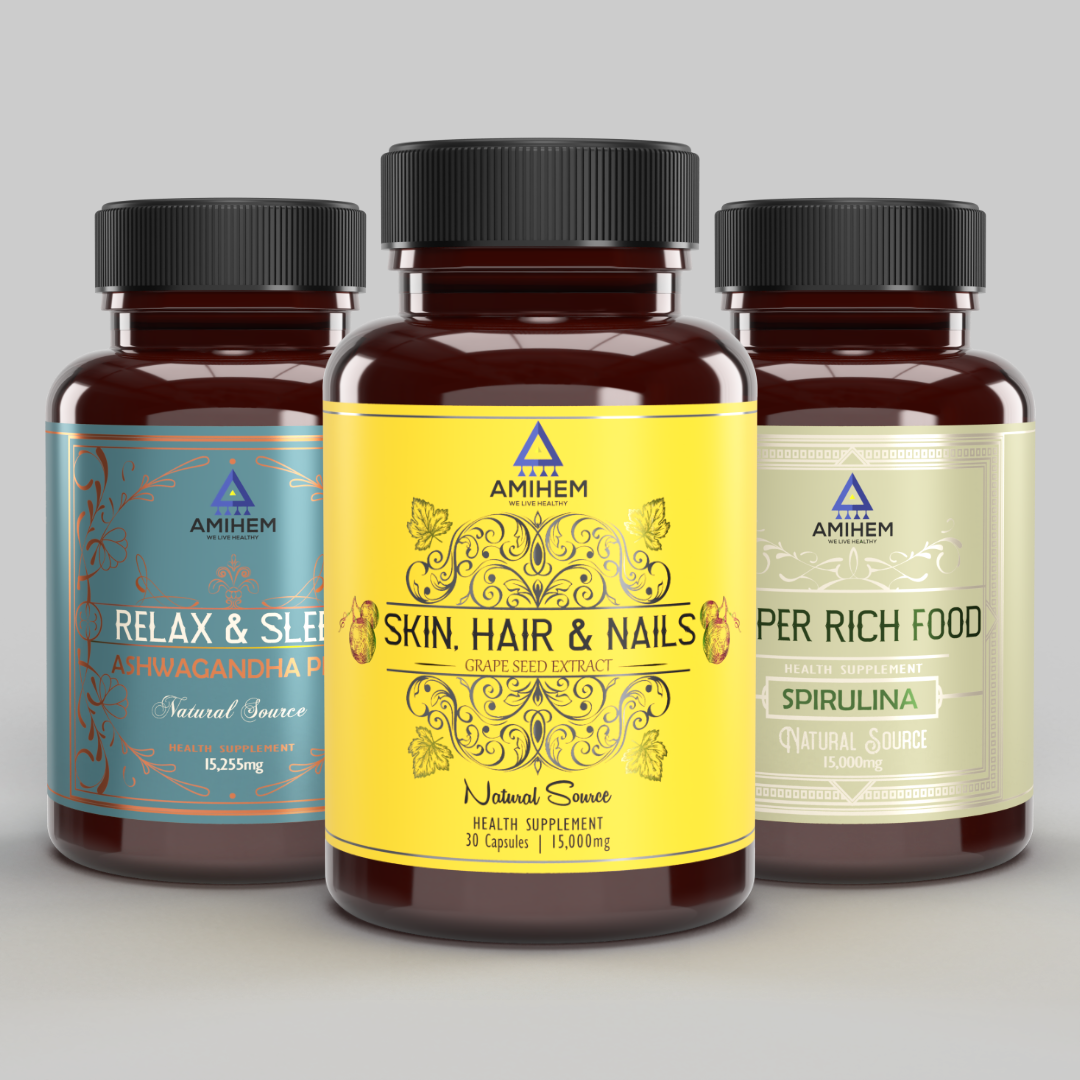In recent years, Spirulina has gained immense popularity in India, especially among those looking for natural ways to boost heart health. This blue-green algae, known for its rich nutrient profile, is packed with vitamins, minerals, and antioxidants that can support overall wellness. The emerging research suggests that spirulina may offer significant benefits for heart health.
1. Improves Lipid Profile Naturally
One of the key benefits of Spirulina is its ability to improve lipid profiles, which is crucial for heart health. High cholesterol levels are a major risk factor for heart disease, and Spirulina can help manage this. Several studies have indicated that Spirulina supplementation can positively impact lipid profiles, potentially reducing the risk of cardiovascular diseases. A randomized controlled trial published in the Annals of Nutrition and Metabolism found that consuming Spirulina significantly decreased total cholesterol, LDL cholesterol, and triglyceride levels, while simultaneously increasing HDL cholesterol levels [1]. Another study published in the Journal of Medicinal Food reported similar findings, with spirulina supplementation leading to improvements in lipid profiles among participants with hyperlipidemia [2].
2. Rich in Antioxidants for Heart Protection
Spirulina is a powerhouse of antioxidants, particularly phycocyanin, which plays a crucial role in protecting the heart. Antioxidants help neutralize free radicals, reducing oxidative stress - a major contributor to cardiovascular diseases. Research published in Phytotherapy Research highlighted that Spirulina's antioxidant properties can help mitigate oxidative damage and inflammation, thereby safeguarding cardiovascular health [3]. Regular consumption of Spirulina can be a natural way to boost your body's defense against oxidative stress and support heart health.
3. Fights Inflammation and Promotes Heart Health
Chronic inflammation is a significant risk factor for heart disease, and spirulina's potent anti-inflammatory properties may help mitigate this risk, promoting a healthier heart. Studies have shown that spirulina contains compounds such as phycocyanin and gamma-linolenic acid (GLA) that possess potent anti-inflammatory properties. These compounds help modulate inflammatory pathways, potentially reducing the risk of atherosclerosis and other cardiovascular conditions [4]. By incorporating Spirulina into your diet, you can support your body's natural anti-inflammatory response, contributing to long-term heart health.
Why Choose Spirulina?
Spirulina is not just another supplement; it's a superfood that offers a holistic approach to heart health. Its ability to improve lipid profiles, provide antioxidant protection, and reduce inflammation makes it a valuable addition to any wellness regimen.
By incorporating spirulina into your diet, you may harness its potential benefits for heart health, along with its other valuable nutrients. Always remember, a healthy lifestyle, including regular exercise and a balanced diet, remains key to maintaining optimal cardiovascular wellness.
For those seeking to harness the power of Spirulina, Amihem's single-ingredient, plant-based Spirulina offers a convenient and reliable option. The Spirulina Super Rich Food provides a high-quality source of this nutrient-dense superfood, allowing individuals to easily incorporate its benefits into their daily routine. The softgel format of Amihem's capsules offers added convenience by eliminating the bitterness often associated with spirulina and enhancing bioavailability compared to traditional capsules or powdered forms.
However, it's important to remember that while supplements like spirulina can complement a healthy lifestyle, they should not replace balanced nutrition and regular exercise. As always, consulting with a healthcare professional is advised, especially for individuals with specific health concerns or dietary restrictions.
Conclusion: Embrace Spirulina for Heart Health
With its plethora of health-promoting properties, spirulina stands as a testament to the potential of natural superfoods in supporting overall well-being. Embracing the benefits of spirulina alongside a mindful approach to health can pave the way towards a heart-healthy lifestyle for years to come.
References:
-
Serban, M. C., Sahebkar, A., Dragan, S., Stoichescu-Hogea, G., Ursoniu, S., & Andrica, F. (2016). A systematic review and meta-analysis of the impact of Spirulina supplementation on plasma lipid concentrations. Annals of Nutrition & Metabolism, 69(3-4), 216-227. https://pubmed.ncbi.nlm.nih.gov/27626936/
-
Torres-Duran, P. V., Ferreira-Hermosillo, A., & Juarez-Oropeza, M. A. (2007). Antihyperlipemic and antihypertensive effects of Spirulina maxima in an open sample of Mexican population: a preliminary report. Journal of Medicinal Food, 10(2), 225-29. https://pubmed.ncbi.nlm.nih.gov/17658120/
-
Ku, C. S., Yang, Y., Park, Y., & Lee, J. (2013). Health benefits of blue-green algae: prevention of cardiovascular disease and nonalcoholic fatty liver disease. Journal of Medicinal Food, 16(2), 103-111. https://pubmed.ncbi.nlm.nih.gov/23378468/
-
McCarty, M. F., & Barroso-Aranda, J. (2009). Contreras F. Oral phycocyanobilin may diminish the pathogenicity of activated brain microglia in neurodegenerative disorders. Medical Hypotheses, 73(4), 548-550. https://pubmed.ncbi.nlm.nih.gov/19409697/


